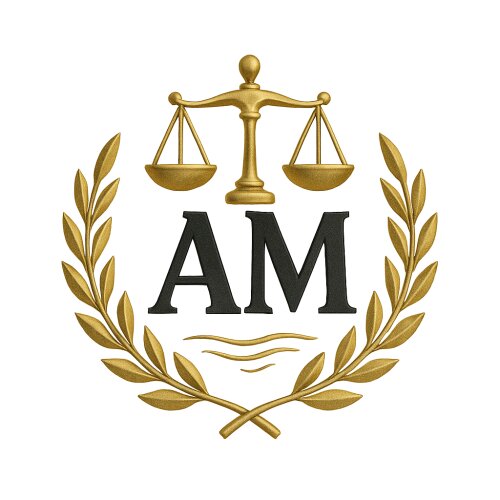Best Funds & Asset Management Lawyers in Mława
Share your needs with us, get contacted by law firms.
Free. Takes 2 min.
List of the best lawyers in Mława, Poland
About Funds & Asset Management Law in Mława, Poland
Funds and asset management in Mława operates within the Polish national legal framework and the European Union regulatory environment. That means rules on the formation, licensing, operation and supervision of investment funds and managers are set at the national level, with many standards driven by EU directives and regulations. In practice people and companies in Mława who create, manage, sell or invest in funds must follow requirements covering authorization, investor disclosure, custody of assets, risk management, anti-money-laundering and taxation. While Mława is a local market, many fund managers and service providers may be based in larger Polish financial centres. Local clients and businesses still rely on Polish law, local courts and national supervisory bodies when legal issues arise.
Why You May Need a Lawyer
Dealing with funds and asset management involves complex legal, regulatory and commercial issues. You may need a lawyer in Mława in situations such as:
- Starting a fund or alternative investment vehicle, which requires drafting constitutional documents, offering documents and obtaining authorisation or registration.
- Setting up an asset management company or obtaining an AIFM or portfolio management licence.
- Preparing or reviewing prospectuses, key investor information documents and subscription documents to make sure they meet disclosure and compliance requirements.
- Structuring cross-border investment arrangements and advising on passporting or cross-border marketing under EU rules.
- Handling anti-money-laundering compliance, customer due diligence and reporting obligations.
- Negotiating agreements with depositaries, custodians, administrators and distributors.
- Managing investor disputes, regulatory investigations or enforcement actions by supervisory authorities.
- Advising on tax consequences for funds, managers and investors and structuring transactions to optimise tax treatment within Polish law.
- Restructuring or winding up a fund, including creditor and investor claims and distribution of assets.
Local Laws Overview
The rules that matter most in funds and asset management in Poland include a mix of national statutes, secondary regulation and EU rules. Key aspects to keep in mind are:
- Licensing and supervision - Fund managers and certain types of funds must be authorised or registered with the national financial regulator. Authorised entities are subject to ongoing prudential, organisational and reporting obligations.
- Fund types - The legal framework covers several forms of investment vehicles - open-ended investment funds, closed-ended funds, alternative investment funds and specialised collective investment vehicles. Each vehicle type has specific rules on liquidity, investor eligibility and corporate form.
- Investor protection and disclosure - Fund promoters must provide accurate offering documents and standardised investor information. Advertising and distribution rules restrict how funds may be marketed, especially to retail investors.
- Depositary and custody - Funds commonly must appoint an independent depositary or custodian to safeguard assets and to carry out oversight functions.
- Conduct of business - Managers must implement policies for conflicts of interest, remuneration, risk management and valuation. There are rules on record-keeping, internal controls and outsourcing.
- Anti-money-laundering - Fund managers and related financial intermediaries are subject to AML and counter-terrorist financing obligations, including customer identification, enhanced due diligence and suspicious activity reporting.
- Taxation - Tax treatment varies depending on the fund type, investor status and transaction type. Income distributions, capital gains and company-level taxes may apply. Proper tax advice is essential to avoid unexpected liabilities.
- Civil and procedural law - Commercial agreements, investor rights and disputes are governed by Polish civil and commercial law, with disputes resolved in national courts or by arbitration if parties agreed.
Frequently Asked Questions
What steps are needed to start an investment fund in Poland?
Starting a fund typically involves choosing the appropriate legal form, preparing constitutive documents and investment rules, drafting a prospectus or offering memorandum, appointing service providers such as a depositary and custodian, and either registering the fund or obtaining authorisation from the financial regulator. You should also implement compliance policies and meet capital and organisational requirements. A lawyer helps coordinate these steps and prepare the regulatory filings.
Do fund managers need a licence to operate in Poland?
Yes - managers of certain types of funds must be authorised or registered with the national financial supervisor. The exact licence depends on the type of management activity, the type of fund and whether cross-border marketing is planned. Operating without required authorisation can lead to administrative sanctions and civil liability.
Can foreign fund managers market funds in Poland?
Foreign managers can market funds in Poland but usually must comply with EU passporting rules or national marketing requirements. They may need to notify the Polish regulator or work with a local distributor. Cross-border activity also triggers rules on consumer protection and local AML obligations.
What investor protections exist for people investing in funds?
Protections include mandatory disclosure of material risks and fees, custody of fund assets by an independent depositary, rules limiting certain conflicts of interest, and supervision by the national regulator. Retail investors may have additional safeguards compared to professional investors. If rights are breached, investors may pursue civil claims or file complaints with supervisory bodies.
How are fund managers and investors taxed in Poland?
Taxation depends on the legal form of the fund, investor residency and the type of income. Funds may be taxed at entity level or treated as tax-transparent vehicles. Investors may face personal income tax or corporate income tax on distributions and capital gains. There are also withholding tax considerations for cross-border payments. You should obtain tax advice tailored to the specific fund structure and investor profile.
What are the AML requirements for funds and managers?
Fund managers and related intermediaries must implement anti-money-laundering measures - customer due diligence, ongoing monitoring, record retention and reporting of suspicious transactions. Enhanced due diligence is required for higher-risk clients and certain products. Compliance with AML rules is essential to avoid heavy penalties and reputational damage.
How long does regulatory approval usually take?
Approval timelines vary by the type of authorisation, completeness of the application and regulator workload. Initial registration or licensing can take weeks to several months. Preparing thorough documentation and responding promptly to regulator queries helps speed up the process. A lawyer or compliance adviser can help manage timelines and expectations.
What should I look for when hiring a lawyer for funds and asset management?
Choose a lawyer with specific experience in investment funds, asset management and financial regulation. Look for a track record of fund formation, regulatory authorisations, contract negotiations and dispute resolution in the Polish market. Check professional credentials, ask for references and confirm familiarity with AML, tax and cross-border rules relevant to your project.
How are disputes between investors and fund managers resolved?
Disputes can be resolved through negotiation, mediation, arbitration or court proceedings. The applicable forum is usually set out in the fund documents or management agreement. Courts apply Polish civil and commercial law. Many funds include arbitration clauses to allow faster resolution, but the best route depends on the dispute type, desired remedies and confidentiality needs.
What documents should I have ready for an initial legal consultation?
Bring or prepare a clear summary of your objectives, any draft fund documents, corporate records of sponsor entities, proposed marketing plans, service provider agreements if already drafted, financial projections and any regulatory correspondence. Also have details about expected investors and jurisdictions involved. The more information you provide, the more precise the initial legal guidance will be.
Additional Resources
Useful public bodies and organisations to consult or to check credentials and rules include national regulators and professional bodies. Key institutions to be aware of are the national financial supervisory authority - which oversees fund authorisations and supervision - the national registry for companies and funds where registrations and company records are kept, the financial ombudsman or consumer protection office for investor complaints, and the national anti-money-laundering authority for AML guidance. Professional associations for lawyers and tax advisers are good sources for referrals and quality assurance. Local chambers of commerce and business organisations can help with introductions to service providers in the region.
Next Steps
If you need legal assistance in funds and asset management in Mława, consider the following practical next steps:
- Clarify your aim - decide whether you want to form a fund, launch a management company, invest as an individual or institution, or handle a dispute. Clear objectives help lawyers give focused advice.
- Gather documents - assemble any business plans, draft agreements, corporate records and information on prospective investors or target assets.
- Choose the right adviser - look for a lawyer or law firm with proven experience in fund formation, regulatory work and financial services in Poland. Ask for references and examples of similar matters.
- Arrange an initial consultation - discuss scope, likely costs, timeline and the information the lawyer needs to proceed. Ask about billing arrangements and whether the adviser will coordinate tax and compliance experts if needed.
- Verify licences and registrations - before engaging service providers or accepting investor funds, confirm that managers, depositaries and distributors hold the required authorisations and appear in the national registers.
- Plan compliance early - build AML, investor disclosure and corporate governance processes into your timetable so authorisation and market entry are not delayed.
- Consider dispute prevention - use clear agreements, independent valuation and custody arrangements, and dispute resolution clauses to reduce the risk and cost of future conflicts.
Seeking local legal advice early helps ensure regulatory compliance, protects investor interests and improves the chances of a successful fund or investment project. A qualified Polish lawyer can explain how the national rules apply to your specific plans and guide you through authorisation, structuring and ongoing compliance.
Lawzana helps you find the best lawyers and law firms in Mława through a curated and pre-screened list of qualified legal professionals. Our platform offers rankings and detailed profiles of attorneys and law firms, allowing you to compare based on practice areas, including Funds & Asset Management, experience, and client feedback.
Each profile includes a description of the firm's areas of practice, client reviews, team members and partners, year of establishment, spoken languages, office locations, contact information, social media presence, and any published articles or resources. Most firms on our platform speak English and are experienced in both local and international legal matters.
Get a quote from top-rated law firms in Mława, Poland — quickly, securely, and without unnecessary hassle.
Disclaimer:
The information provided on this page is for general informational purposes only and does not constitute legal advice. While we strive to ensure the accuracy and relevance of the content, legal information may change over time, and interpretations of the law can vary. You should always consult with a qualified legal professional for advice specific to your situation.
We disclaim all liability for actions taken or not taken based on the content of this page. If you believe any information is incorrect or outdated, please contact us, and we will review and update it where appropriate.









